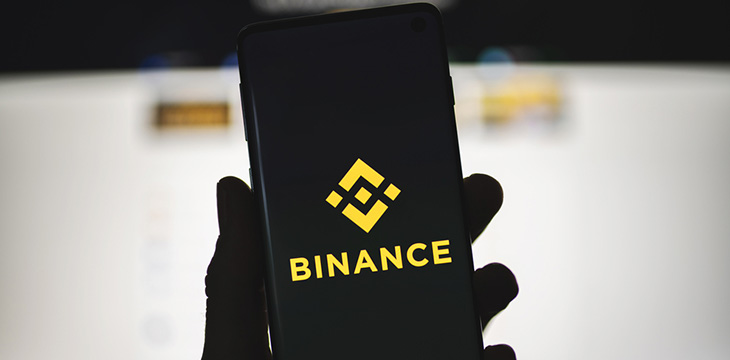Binance is the absolute last company the Philippine government should be welcoming as a crime-fighting partner, given the digital asset exchange’s well-documented criminal history.
The Philippine government’s Department of Information and Communications Technology (DICT) recently launched its National Cybercrime Hub (NCH), an initiative of the Department’s Cybercrime Investigation and Coordinating Center (CICC). The CICC is responsible for all functions related to cybersecurity, including the facilitation of international cooperation on intelligence regarding cybersecurity matters.
Last September, the CICC ‘partnered’ with Binance on a two-day seminar devoted to ‘cybercrime prosecution and blockchain forensics.’ At the time, CICC deputy executive director Mary Rose Magsaysay said the agency participated in the event to “increase the technical capacity of our law enforcement and to help the judicial system appreciate cryptocurrency and how it is used as digital evidence in the judicial system.”
The NCH officially launched last December with the goal of combating cybercrimes that are rampant in the Philippines, including online abuse, exploitation and cyber terrorism. Jarek Jakubcek, Binance’s Head of Intelligence and Investigations for Asia-Pacific (APAC), said the NCH would “provide a strategic avenue for Binance to work with the Philippines authorities in advancing the country’s cybersecurity landscape.”
With the utmost respect to the DICT and the CICC, this is the cyber equivalent of letting the fox inside the chicken coop. It’s akin to leaving Vladimir Putin alone in the secure areas of NATO’s Brussels headquarters. It’s like letting Pablo Escobar comb through U.S. Drug Enforcement Agency databases.
That last analogy may be the most apt because Binance is a transnational criminal organization that actively facilitates many of the crimes the NCH was established to combat. Binance has a well-deserved reputation of undermining local regulators by acting outside the rule of law when doing so improves the company’s bottom line.
The Philippines’ own Securities and Exchange Commission (SEC) has warned local residents not to transact with Binance based on the exchange’s reluctance to pursue local licensing in favor of operating in a legal grey area.
The benefits for Binance appearing to assist the NCH are obvious, not only in terms of positive public relations but also gaining insights into CICC’s existing knowledge base and strategies for combatting criminal operators—like Binance.
Terrorism
Returning for a moment to the expressed purposes behind launching the NCH, if one goal is to combat terrorism, why would it enlist the help of a company with a proven role in facilitating terrorist financing? Just last week, the U.S. Commodity Futures Trading Commission (CFTC) filed civil charges against Binance that included internal chats in which Binance’s former chief compliance officer Samuel Lim joked with co-workers about terrorists using the cryptocurrency exchange to launder money.
Presented with the knowledge that individuals linked to the Hamas terror group were engaging in small-value transactions on Binance to avoid triggering money laundering alerts, Lim and his colleagues didn’t alert law enforcement. No, their only action was to joke about the price of an AK-47 assault rifle. No mention was made of the human cost of the lives an AK-47 might take.
Are these really the people that Philippine law enforcement views as appropriate partners in combatting terrorism? How will the Philippine population react if/when they discover Binance accounts are being used to support homegrown terrorist groups?
Exploitation
If another NCH goal is combating exploitation, recall that the CFTC suit also cited Binance execs discussing a customer engaging in transactions worth millions of dollars that were “very closely associated with illicit activity.”
Some of these transactions were linked to Hydra, the infamous Russian-based darknet marketplace that was shut down by U.S. and German authorities last year. Binance’s primary concern wasn’t that it might be helping a criminal evade law enforcement, merely that the criminal should open a new Binance account that wasn’t “tainted” by its Hydra association.
Binance was a major Hydra counterparty, with $780 million in transactions between the two sites before Hydra was forced offline. Like other darknet markets, Hydra was used to launder proceeds derived from a wide variety of illicit activities, including sexual trafficking and child sexual abuse material.
The same type of unspeakable activities were linked to another Russia-founded darknet exchange, Bitzlato, whose customers used Binance to transfer over $346 million. And Binance’s Lim had no illusions about the exchange’s popularity with Russian customers, saying: “Like come on. They are here for crime.”
Note that none of these revelations were publicly revealed by Binance. It was only through law enforcement actions that Binance’s complicity came to light. How will Philippine governmental agencies respond when their ‘partner’ is exposed as helping to facilitate sexual trafficking, child abuse and other appalling crimes?
Lies and the lying liars who tell them
Binance has a long history of saying all the right things in public while secretly undermining the very regulators and law enforcement they claim to respect. Last year, the U.K.’s Financial Conduct Authority concluded that Binance was “not capable of being effectively supervised” after catching the exchange in one lie too many.
Closer to the Philippines, Japan’s Financial Services Agency (FSA) issued a public warning last week identifying a number of digital asset exchanges serving Japanese customers without the FSA’s approval. Binance has been warned multiple times that its Japanese operations are in violation of local laws and yet it continues to operate in the country regardless.
Last November, Binance acquired the FSA-registered Sakura Exchange, using the occasion to declare its commitment “to enter Japan under regulatory compliance.” At the same time, it made the token gesture of halting new customer registrations at Binance.com while assuring existing Japanese customers that their access to the site wouldn’t be impacted in the slightest.
Rest assured, if any Japanese residents with money to burn wish to open a new Binance account, Binance will be only too happy to oblige. We know this because Binance similarly promised to cut off its U.S. customers in 2019, even as it offered them digital workarounds to evade U.S. regulatory scrutiny.
Giving Binance access to the inner workings of Philippine authorities’ efforts to clean up cyberspace basically dooms these efforts before they begin. Binance will glean clues on how to dodge law enforcement, knowledge that Binance will undoubtedly pass on to its criminal customers.
Case in point: the CFTC suit quotes one of the ‘benefits’ of Binance’s VIP program is ‘prompt notification of any law enforcement inquiry concerning their account.’ Once Binance becomes aware of a law enforcement request to freeze an account, Binance’s VIP team is to “contact the user through all available means (text, phone) to inform him/her that his account has been frozen or unfrozen. Do not directly tell the user to run … if the user is a big trader, or a smart one, he/she will get the hint.”
So, by partnering with Philippine law enforcement, criminals will get advance notice of an investigation, while Binance will obtain another fig leaf of propriety, deferring its legal reckoning yet again.
But make no mistake, that reckoning is coming. The CFTC suit v. Binance revealed that U.S. authorities have access to the contents of Binance boss Changpeng ‘CZ’ Zhao’s phone. That type of digital skullduggery generally isn’t the CFTC’s stock and trade, strongly suggesting that the U.S. Department of Justice is sharing information gathered as part of its own criminal investigation into Binance.
We’ve no doubt that Philippine law enforcement agencies won’t want to be embarrassed when their U.S. counterparts drop the hammer on CZ. Which is why we respectfully but emphatically urge them to distance themselves from Binance and CZ before it’s too late.
There is perhaps no better example of an individual (CZ) or entity (Binance) that has more perfectly adapted to our current ‘post-truth’ world. No matter what damning facts about their operations are exposed, CZ and Binance simply declare without evidence that they are the most compliant exchange in existence and a regrettably large chunk of the world takes this claim at face value.
But as we’ve seen, if, when presented with evidence of terrorists, money launderers and other malicious actors using the exchange to facilitate truly evil crimes, Binance’s own chief compliance officer responds by making jokes, then the real joke is on us.
To paraphrase Jesse Pinkman, CZ and Binance can’t keep getting away with it. You want to reduce online criminality? Then prosecute online criminals, don’t partner with them.
Follow CoinGeek’s Crypto Crime Cartel series, which delves into the stream of groups—from BitMEX to Binance, Bitcoin.com, Blockstream, ShapeShift, Coinbase, Ripple,
Ethereum, FTX and Tether—who have co-opted the digital asset revolution and turned the industry into a minefield for naïve (and even experienced) players in the market.
New to blockchain? Check out CoinGeek’s Blockchain for Beginners section, the ultimate resource guide to learn more about blockchain technology.









